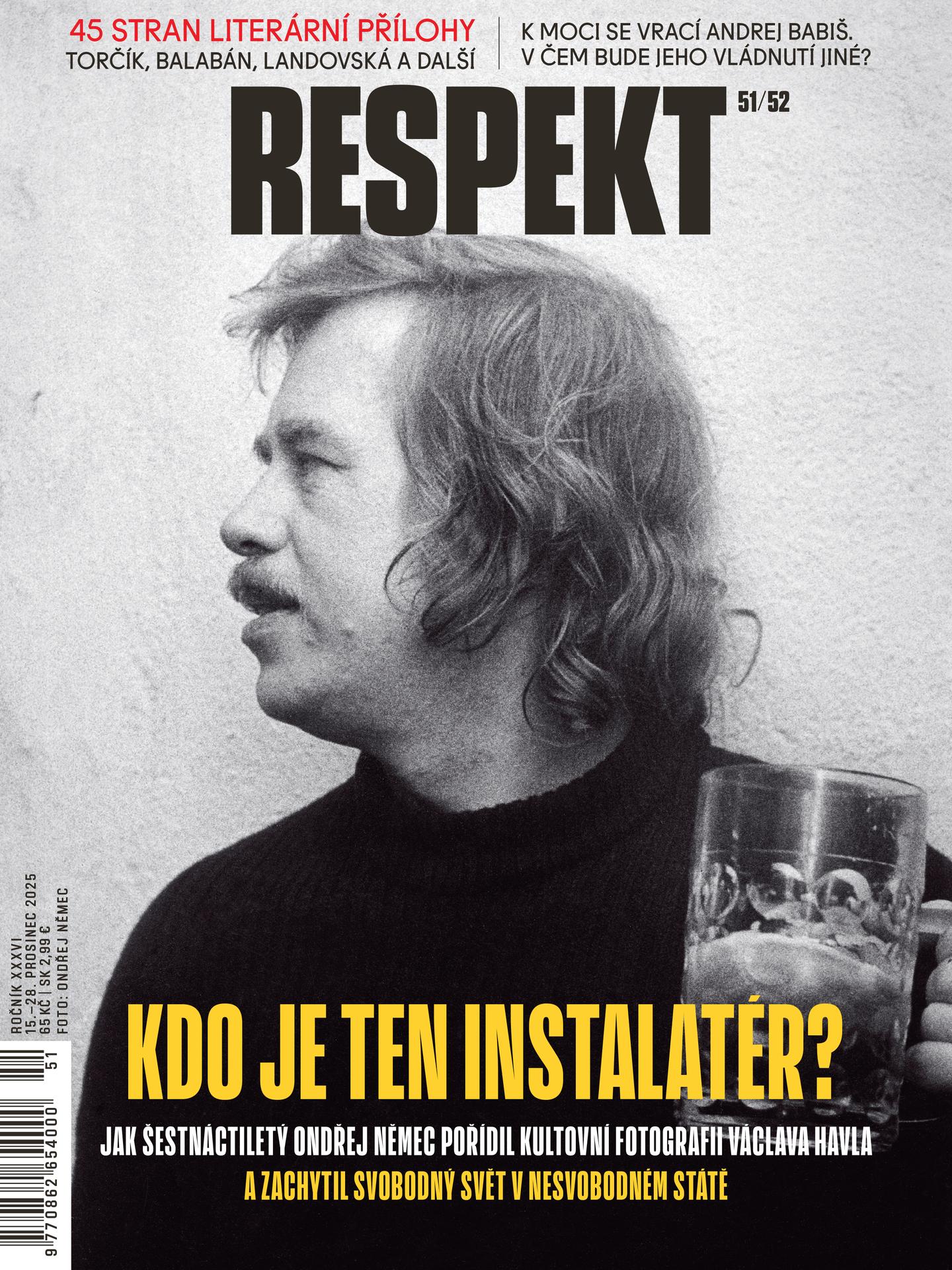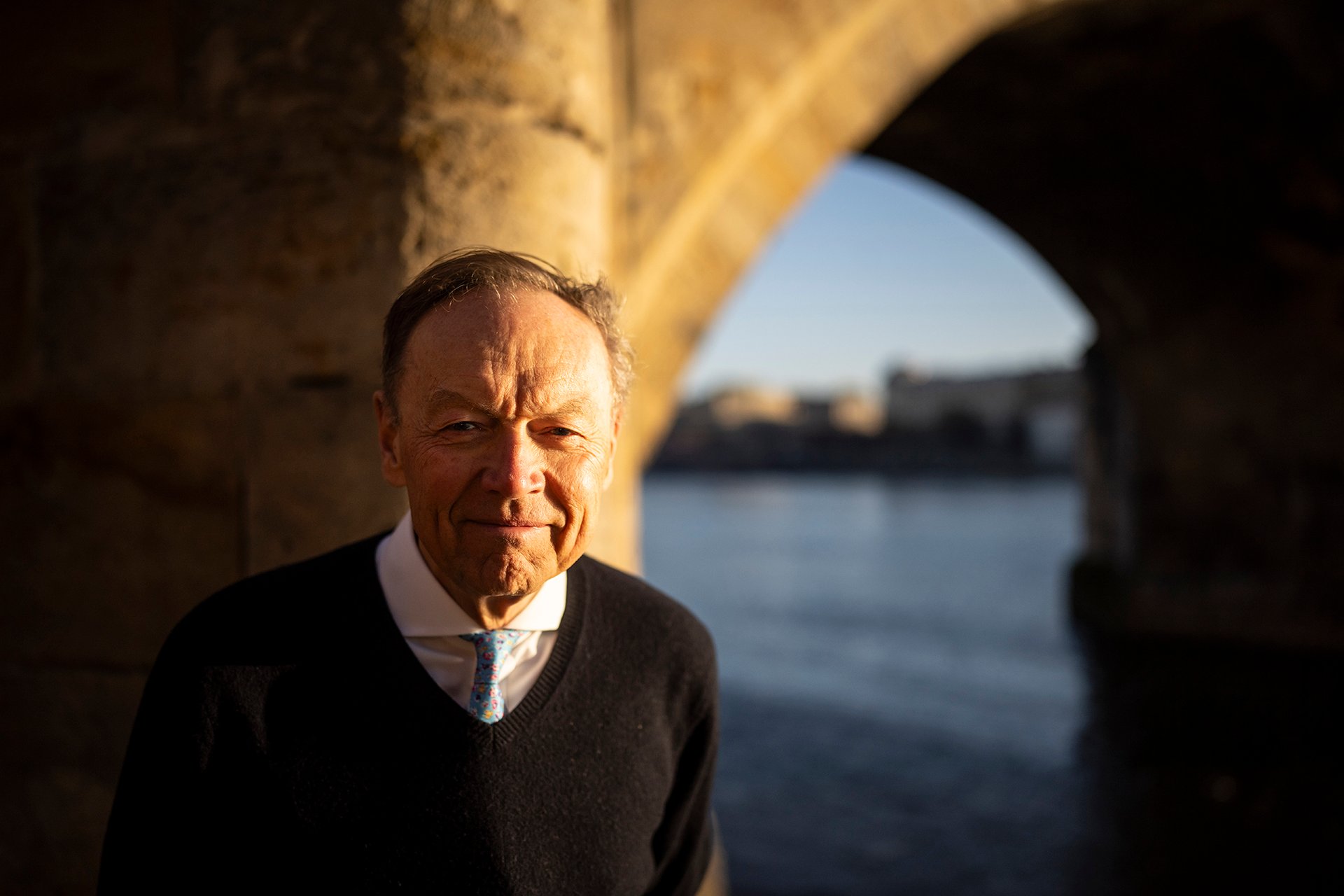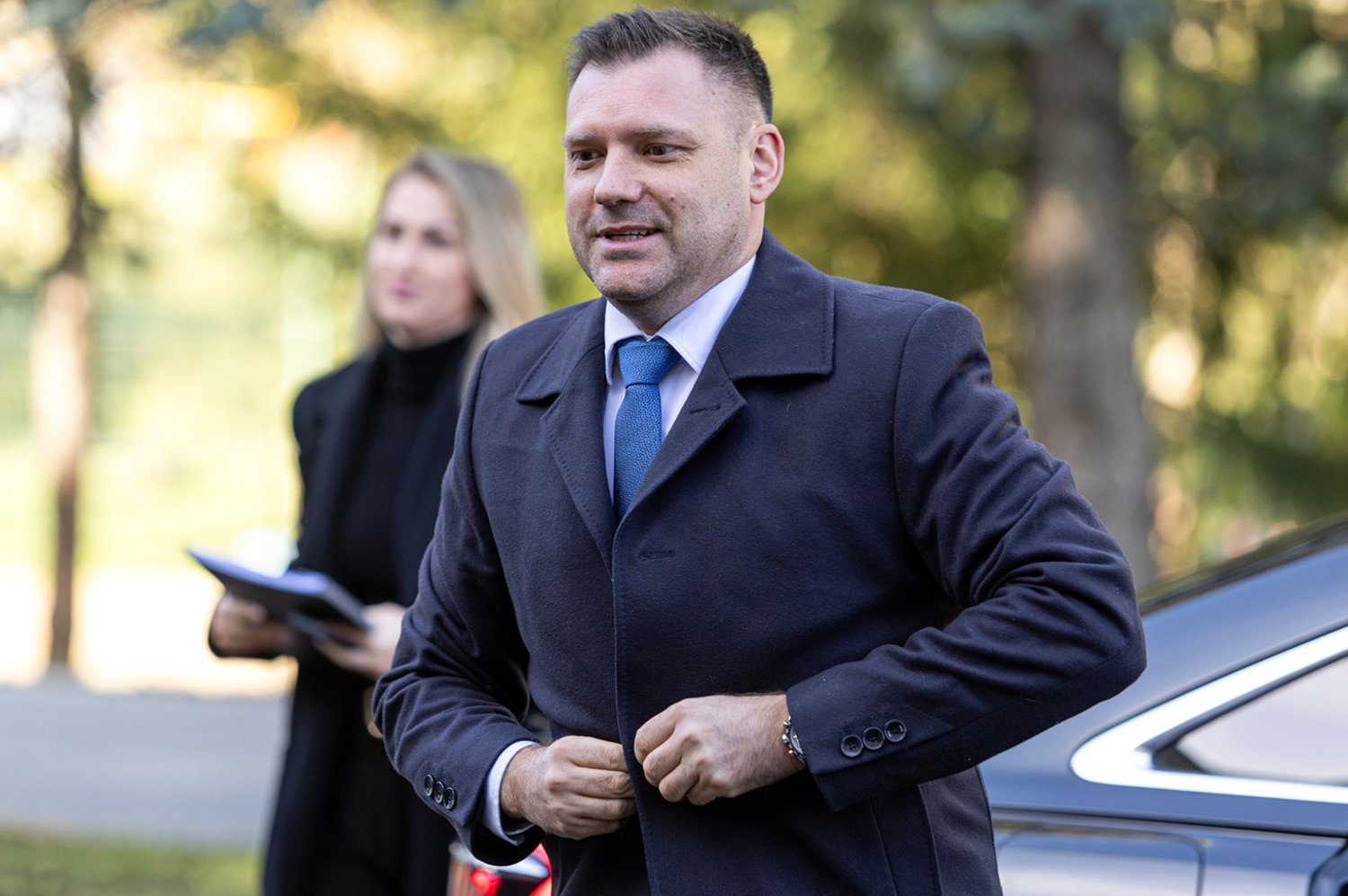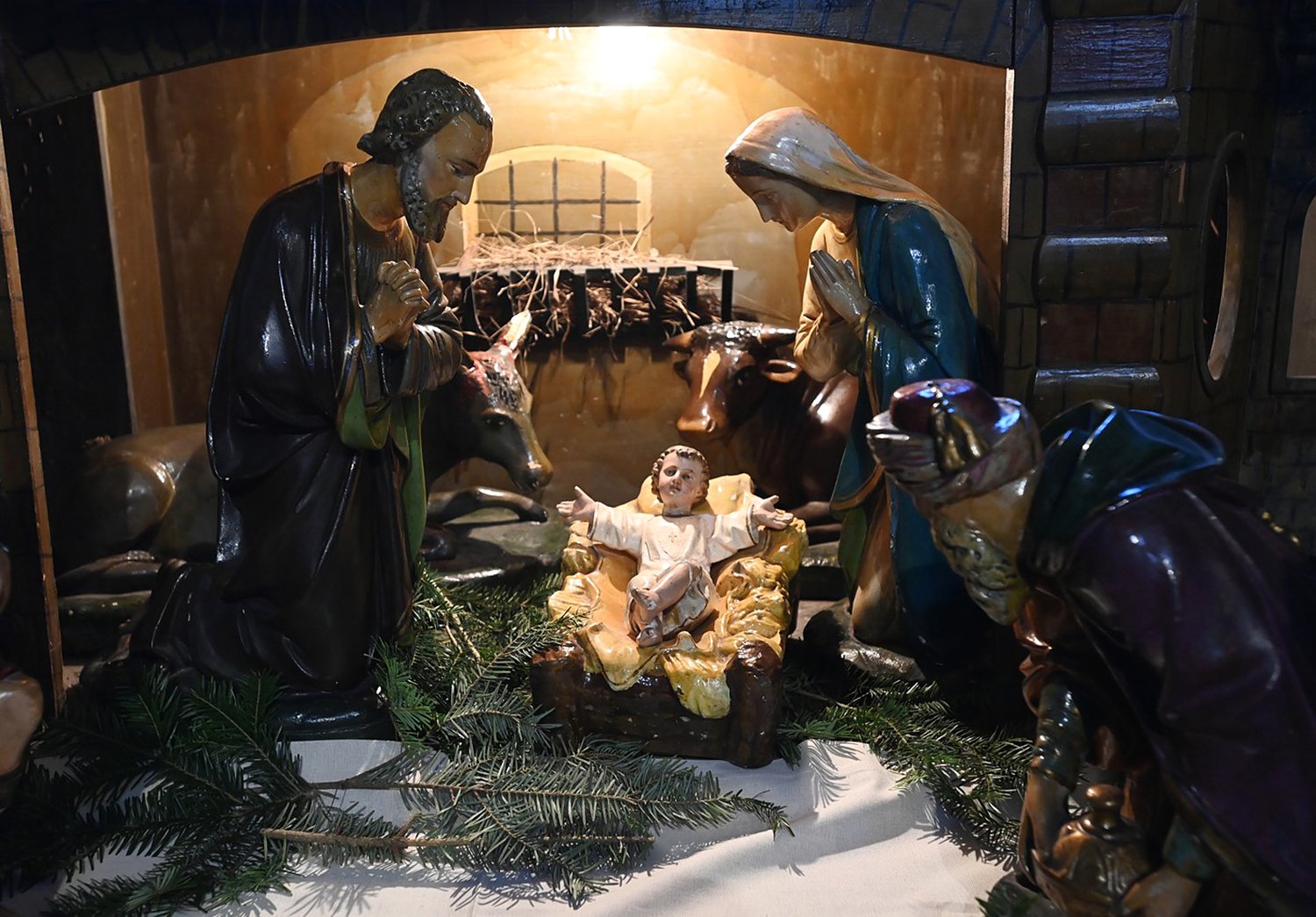Žižka Ready to Fight Again
Why has the Czech state abandoned a monument to the country's greatest warrior?
No one can hide from this giant figure. Wearing a snow-covered helmet, with sharp features, a mighty moustache, an eyepatch, a heavy mace in his hand and a long military cloak covering his heavy medieval armor, he searches the distance with a gloomy look on his face. We're a short distance from the village of Trocnov, near České Budějovice, and this 15-meter-tall stone monument rises above the deserted land. It depicts the legendary Czech warrior Jan Žižka, founder of the medieval Hussite movement, and Trocnov is believed to have been his birthplace.
The monument, together with a nearby museum, was built at the end of 1950s as a memorial to a man who was a national hero for many generations of Czechs. But now, something has changed. Despite Žižka's prevailing status as, according to a poll, one of the most admired Czechs of all time, the state doesn't want to take care of his monument anymore. It has left it up to the locals to preserve this huge and expensive piece.
"It would be a great shame. Oh, how often we walked there. I'm proud of this monument and proud that I was born here," says one of Trocnov's inhabitants, 80-year-old Jiřina Dvořáková. She has a point. The foundations of Žižka's statue were laid more than 100 years ago, paid for by donations not only from the surrounding area but also from Czech expatriates in America. The site served as a podium for historical lectures, as a setting for reenactments of famous Hussite battles and as a venue for various demonstrations of Czech national strength. Žižka's life and legacy were used to stir Czech pride in the late 19th century, then to unite people against the Austro-Hungarian monarchy. Later, he was used for propaganda purposes by the Communists, who saw him as "the first-ever proletarian." "Well, he was fighting for our rights against the Germans and we should cherish that," argues a man walking a dog here on a cold January afternoon.


Today, the cult of Žižka has grown somewhat lukewarm. Czech historians increasingly point to his dark side - killing off innocent people and destroying everything that crossed his path, particularly churches and monasteries. The 21st century apparently needs a different kind of hero. Long lines of school kids and tourists waiting at the entrance to Jan Žižka's memorial are a thing of the past.
The monument is in the hands of a government department dealing with property affairs, set up by the Finance Ministry. The annual number of visitors to Žižka's birthplace approaches 4,000 and the maintanence of the monument costs 350,000 CZK. The Finance Ministry doesn't see it as a sensible use of resources, taking into account the monument's limited popularity and the high price of its upkeep. "We clearly don't have the neccessary resources either for the reconstruction of the monument or for a new exhibition to be built there," says Zdeněk Prokopec, director of the property affairs office in České Budějovice. "At the same time, we don't want to sell it to just anyone, since that person might use it for the wrong purposes. We've had a few signals that extremist nationalists might be interested."
Jiří Zimola, the governor (hejtman) of the South Bohemian region, agrees: "I can't imagine France, for example, renouncing its national monument to Napoleon." That said, the region itself doesn't intend to embrace the memorial and take care of it. What's on the table now is a free-of-charge transfer of the property to the village of Borovany (population 4,000). "We're collecting all the neccessary information now," says Borovany Mayor Stanislav Malík"Whether we take over the monument or not is up to our council to decide. It will be in session in February." He adds that they're prepared to help out with the memorial but want the national and regional authorities to pay their fair share of the maintenance costs too.
"There's no question that Jan Žižka was an important figure in Czech history," says interim Culture Minister Václav Riedlbauch."It's clear that there's a role for the state to play here. I need to look into this case in peace."
• This is a shortened, translated version of the original article Žižka táhne do boje, which first appeared in Respekt 4/2010
Translated By Kateřina Šafaříková
Pokud jste v článku našli chybu, napište nám prosím na [email protected].










